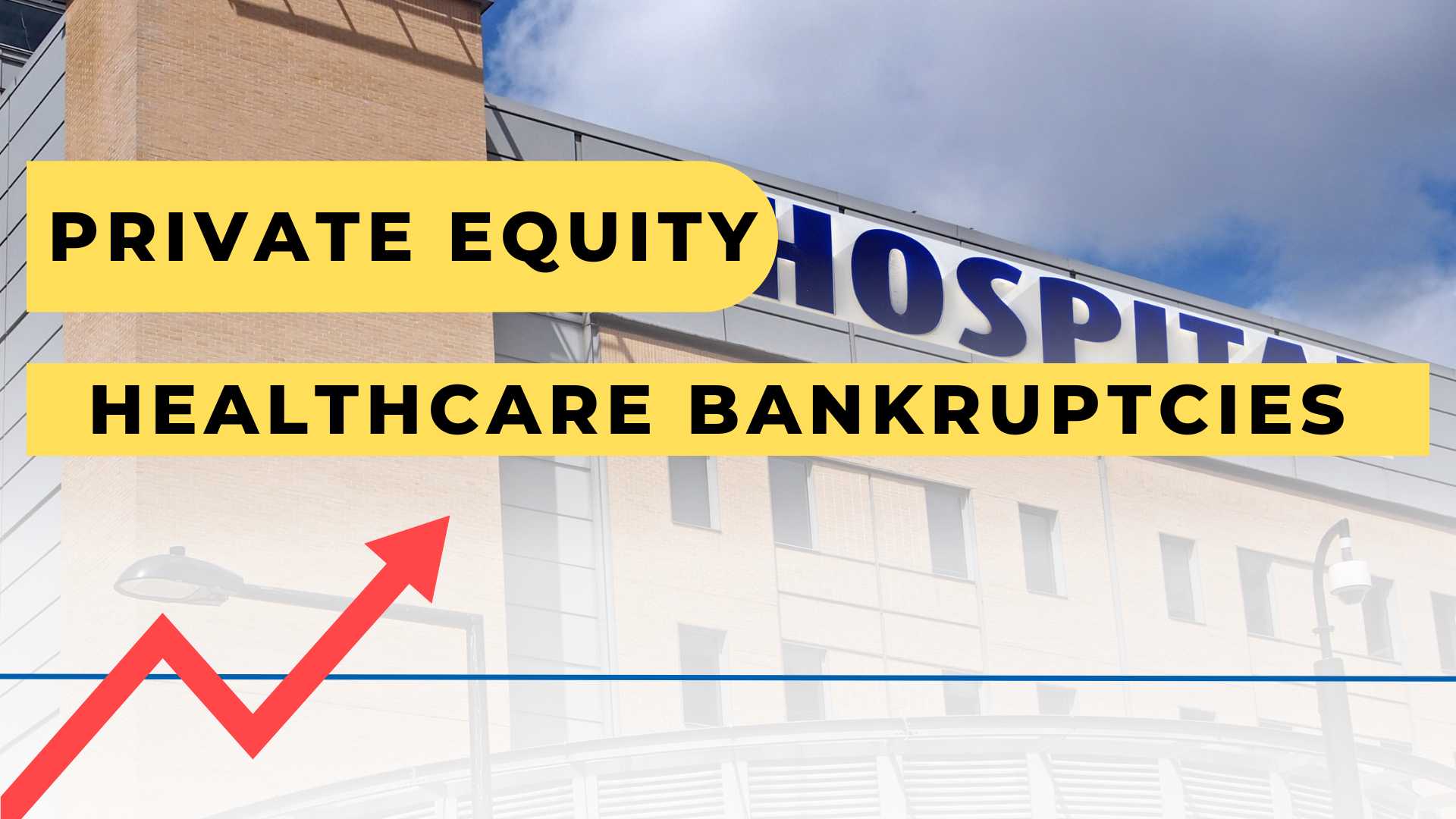
Nearly a quarter of 2024 healthcare bankruptcies tied to private equity ownership
PESP research reveals private equity healthcare bankruptcies show no signs of slowing
August 9, 2024
The Private Equity Stakeholder Project (PESP) has released updated research highlighting a significant and ongoing trend in the healthcare sector: bankruptcies among private equity-owned healthcare companies. During the first half of 2024 alone, nine such companies have filed for bankruptcy, representing 23% of all large U.S. healthcare bankruptcies so far this year.
Key Findings:
- Rising Bankruptcies: In the first six months of 2024, nine private equity-owned healthcare companies declared bankruptcy, accounting for nearly a quarter of all healthcare bankruptcies in the United States so far this year.
- Debt Defaults: In addition to formal bankruptcies, at least six major private equity-owned healthcare companies have defaulted on their debt but have avoided bankruptcy court through distressed debt exchanges.
- High-Risk Companies: Many private equity-owned healthcare companies are heavily leveraged and at high risk for bankruptcy. This includes multiple companies that have taken on significant debt to finance payouts to their private equity owners.
In April of this year, PESP reported that 21% of the 80 large healthcare companies that filed for bankruptcy in 2023 were owned by private equity firms. This trend has not abated in 2024, with nine bankruptcies by private equity-owned companies in the first half of the year (out of 40 total), accounting for 23% of all healthcare bankruptcies filed so far. Furthermore, distressed debt exchanges have become a tactic for these companies to avoid legal bankruptcy proceedings. In recent months, at least six major private equity-owned healthcare companies have completed distressed exchanges.
“Private equity’s aggressive financial strategies increase the risk of bankruptcy and threaten the delivery of critical healthcare services,” said PESP Director of Programs Eileen O’Grady. “The use of excessive debt by these firms can have significant ripple effects on the broader healthcare industry. This year might see a grim scenario of more healthcare bankruptcies if current trends persist.”
The aggressive use of debt by private equity firms leaves their portfolio companies vulnerable to market fluctuations, such as high interest rates and rising labor costs. Some firms also burden their companies with additional debt to fund shareholder payouts, known as dividend recapitalizations.
Examples of troubling bankruptcies and distressed companies:
- Consulate Health Care, Steward Health Care, and Cano Health: These companies, currently or formerly backed by private equity, were responsible for three of the four largest healthcare bankruptcies this year, each with total liabilities exceeding $1 billion.
- Ensemble RCM: Last month, the private equity-owned medical debt collector took on over $800 million in new debt to finance a payout to its owners.
“If private equity’s current practices continue unchecked,” O’Grady said, “2024 could surpass 2023 in healthcare bankruptcies and distress, with severe consequences for the American healthcare infrastructure.”
